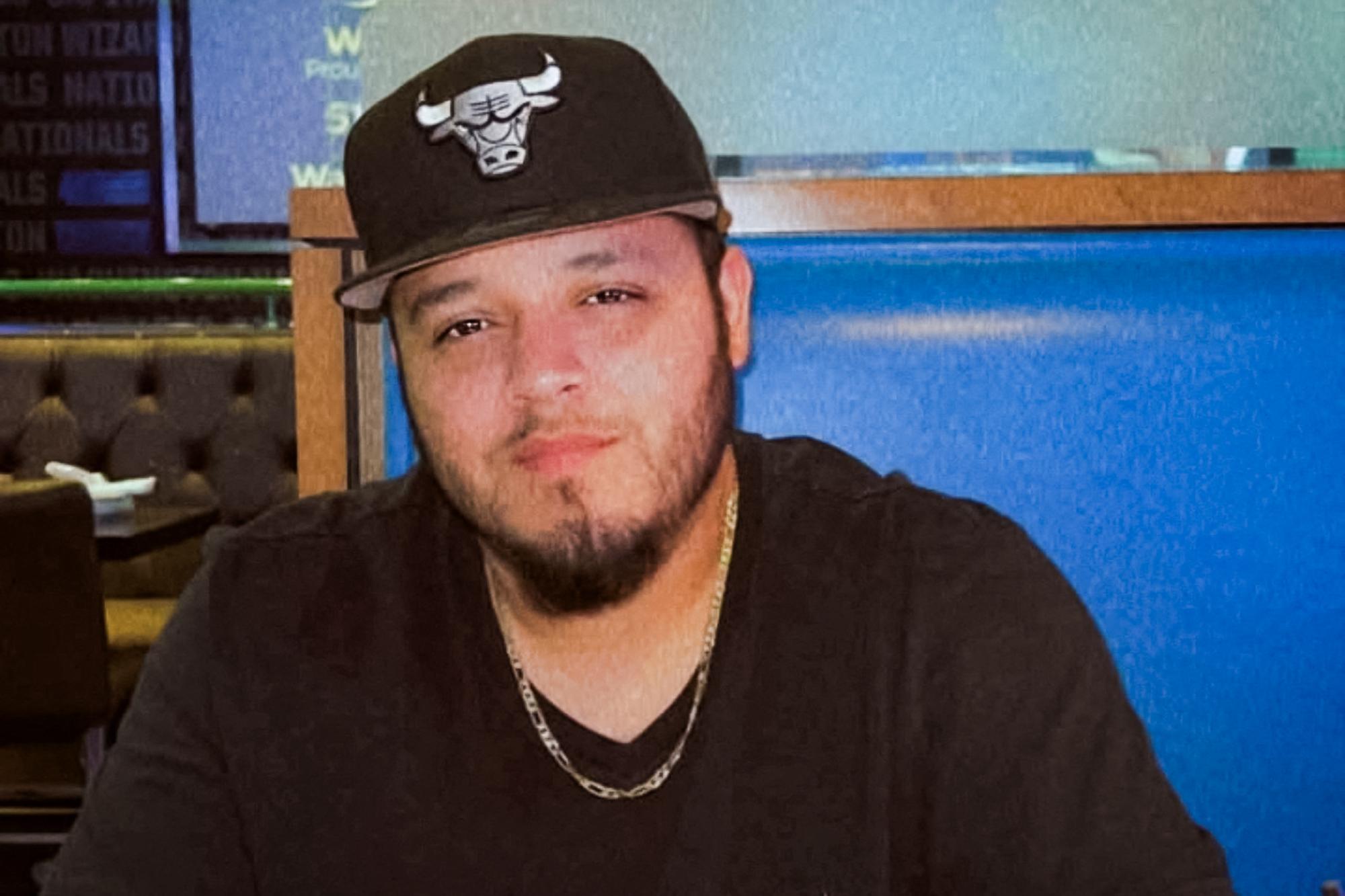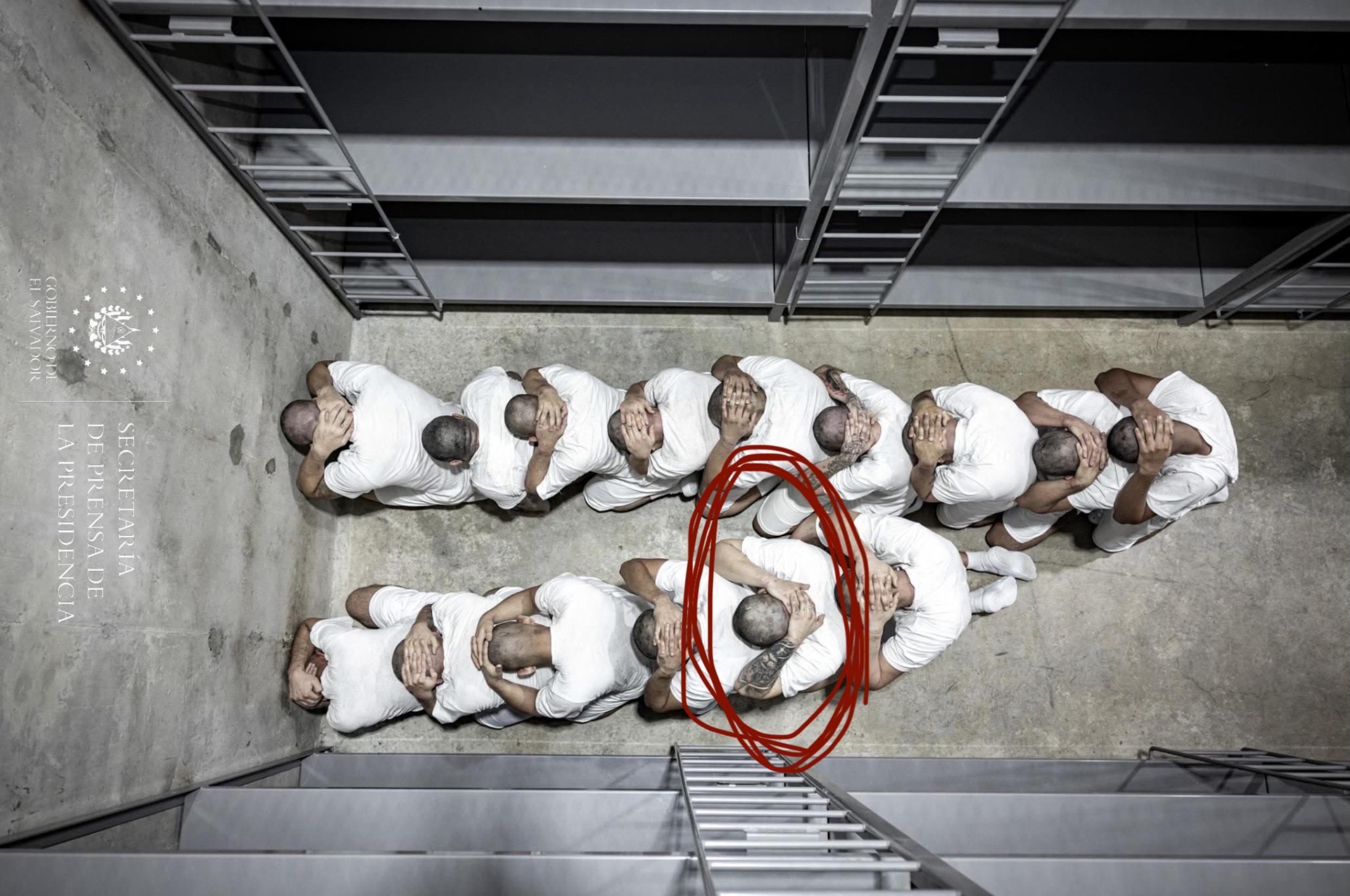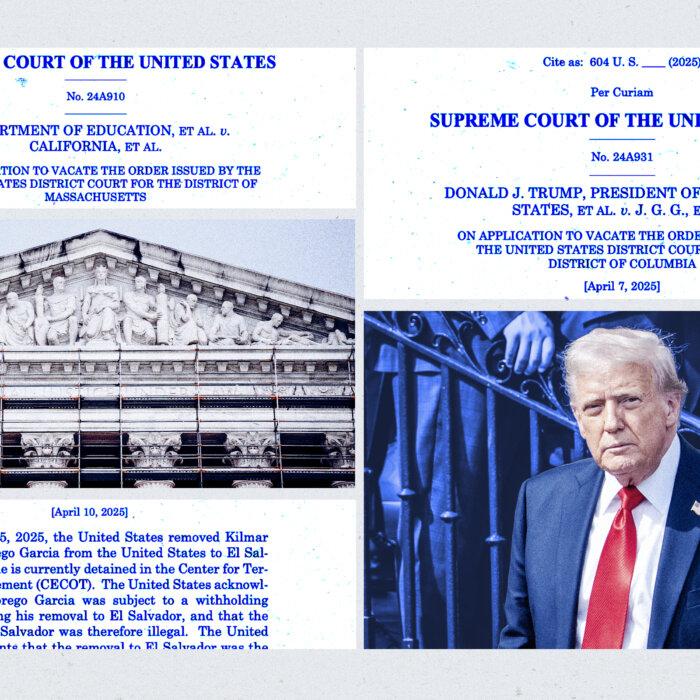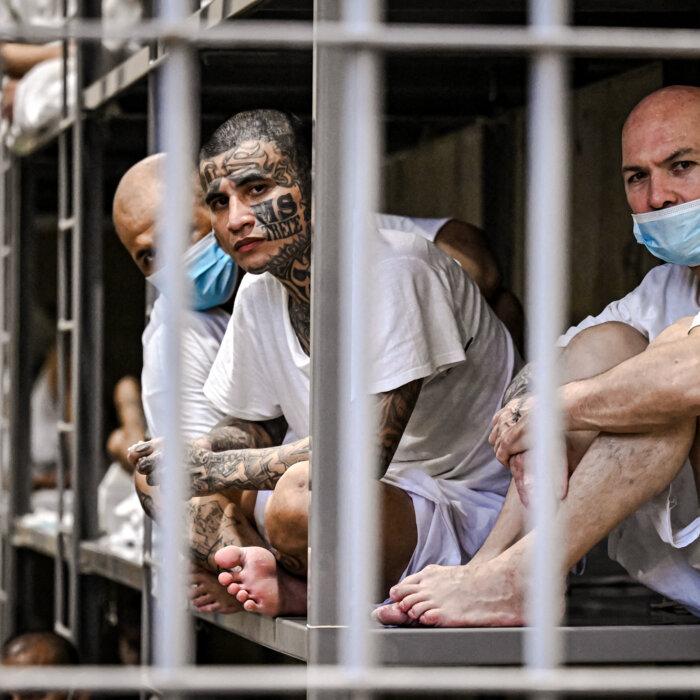For more than five years, Kilmar Abrego Garcia was an adjudged illegal immigrant living on borrowed time in the United States.
During that period, a deportation order applied to him, but it had been put on hold. This fact was overshadowed by the uproar surrounding his recent deportation.
The El Salvador native, who disputes a judge’s finding that the evidence that he is an MS-13 gang member is truthful, was sent to prison in his home country without a hearing in early March.
That alleged violation of due process touched off a media frenzy and a legal tug-of-war that has already reached the nation’s highest court. The case is among several that could affect President Donald Trump’s pursuit of stricter immigration law enforcement.
Nearly a month after Abrego Garcia, 29, was deported, the U.S. Supreme Court ordered the Trump administration to facilitate his return to the United States.
It’s up to El Salvador to decide what to do with one of its citizens. So far, the country is refusing to relinquish custody and send him back.
Abrego Garcia’s supporters are lobbying for his freedom. Some politicians are heading to El Salvador, following in the footsteps of Sen. Chris Van Hollen (D-Md.). He flew to the country and visited face-to-face with Abrego Garcia under the Salvadoran government’s supervision in mid-April.
His status as an illegal immigrant remains unchallenged, although many other aspects of the case are in contention.
Legal rulings, court filings, and other emerging information continue to sharpen the picture of who Abrego Garcia is, why authorities are concerned about him, and whether his deportation was justified.
One Man, Two Descriptions
Abrego Garcia became a poster child for two dueling camps.
Supporters and mainstream media reports describe him as a loving father unjustly ripped away from his wife and children in Maryland, where he has lived for more than a decade.
The National Day Laborer Organizing Network says authorities were trying to justify their actions by “falsely labeling” him as a gang member “without any real evidence.”
As of April 22, that group’s GoFundMe account to support the Abrego Garcia family had reached more than 90 percent of its $290,000 goal.
U.S. authorities say Abrego Garcia’s removal was overdue and was executed for just cause.

Sen. Chris Van Hollen (D-Md.) meets with Kilmar Armando Abrego Garcia (L) in San Salvador, El Salvador, on April 17, 2025. Abrego Garcia, an illegal immigrant and suspected MS-13 gang member, was deported by the Trump administration and has been held in prison in El Salvador since March 15. Sen. Van Hollen’s Office via Getty Images
Arrest Set Stage for Deportation
Events that culminated in Abrego Garcia’s deportation this year date to 2019, police and court records say. The timeline began in March 2019, when Maryland police arrested Abrego Garcia in the company of alleged MS-13 gang members.
His mother, Cecelia, handcrafted stuffed tortillas called pupusas, the El Salvadoran national dish. After learning that her business was profitable, Barrio 18 repeatedly threatened the family, including Abrego Garcia’s father, a former police officer in El Salvador, the judge noted.
Because of ongoing threats from Barrio 18, Abrego Garcia left El Salvador. Several court records say he came to the United States in 2011, although Maryland police stated that Abrego Garcia set his arrival at a more specific date, about March 25, 2012.
At the time—and since then—Abrego Garcia denied any connection to or knowledge of MS-13. Circumstances suggested otherwise, according to authorities.
He was arrested with a trio of men whom police say were loitering near a Home Depot store in Hyattsville, Maryland, on March 28, 2019. An officer immediately recognized one of the men as an MS-13 member, prompting further investigation.
“Officers know MS-13 gang members are only allowed to hang around other members or prospects for the gang,” the record reads.
Upon his arrest, Abrego Garcia was wearing a hoodie emblazoned with a design depicting “rolls of money covering the eyes, ears and mouth of the presidents on the separate denominations,” Such imagery is “indicative of the Hispanic gang culture,” according to the record, and is used to indicate “see no evil, hear no evil, and say no evil.”
Abrego Garcia was also wearing a Chicago Bulls hat to signify that he was an MS-13 member “in good standing,” police stated.

Kilmar Abrego Garcia, a Salvadoran illegal immigrant, who was living in Maryland and was deported to El Salvador, is seen wearing a Chicago Bulls hat in this handout image on April 9, 2025. Abrego Garcia’s Family/File Photo/Handout via Reuters
“A past proven and reliable source of information” told police that Abrego Garcia was active with the gang’s “Westerns clique” and gave his rank and gang nickname, “Chele.”
The report states that Abrego Garcia had $1,178 in cash and that marijuana was found at the scene. As a result of that arrest, authorities launched deportation proceedings against him.
Not ‘Mistakenly Deported,’ Official Says
Citing the circumstances, judges denied Abrego Garcia bail. They also rejected his request for asylum.
In October 2019, a judge granted an order withholding his removal, a much-misunderstood decision, homeland security adviser Stephen Miller said.
A withholding order “does not eliminate the deportation order,” he told reporters on April 14. Rather, the deportation order remains in place, while proceedings are put on hold pending further action from immigration officials.
While that 2019 withholding order blocked U.S. officials from sending Abrego Garcia back to El Salvador, he “could be indefinitely detained and removed to any other country in the world,” Miller said.
The judge’s decision to keep him out of El Salvador was based on evidence that he was in danger from the Barrio 18 gang there. But Miller said that threat is gone now because the Salvadoran government has worked to eradicate that gang.
Therefore, he said, the U.S. government had no reason to continue pausing the still-effective deportation order.
“This whole entire conversation has been wrong from the beginning because nobody was ‘mistakenly deported’ anywhere,” Miller said, referring to media headlines about the Abrego Garcia case.
The “only mistake” involved an attorney putting an incorrect statement in a legal filing, he said. That attorney has been “relieved of duty,” Miller said, without naming the lawyer or specifying the legal filing.

White House Deputy Chief of Staff Stephen Miller speaks to reporters outside the West Wing of the White House on April 18, 2025. Miller spoke about Abrego Garcia’s deportation to El Salvador for alleged criminal gang activities. Andrew Harnik/Getty Images
Lawyers Decry Arrest, ‘Gang’ Label
Abrego Garcia’s lawyers asserted their side of the story in court records seeking their client’s release.
The lawyers also called for an immediate halt to U.S. payments to the government of El Salvador for housing deportees.
They said U.S. authorities ignored procedures for reopening the 2019 “withholding of removal” case and “deported [Abrego Garcia] to El Salvador without any legal process whatsoever.”
Before his arrest on March 12, Abrego Garcia was living in Beltsville, Maryland, with his wife, Jennifer Vasquez Sura, their young son, and two children from his wife’s previous relationship.
The couple were married on June 25, 2019, while Abrego Garcia remained in detention for his March 2019 arrest with the alleged MS-13 members. He also was unable to witness the birth of his son while detained that year.
Authorities have “never produced an iota of evidence to support this unfounded accusation” that Abrego Garcia was affiliated with a criminal gang, his lawyers wrote.
They said Abrego Garcia, who has worked in construction, had gone to the Home Depot in Maryland to seek work in 2019, not to meet up with alleged MS-13 gang members. Illegal immigrants and day laborers are known to hang out near hardware stores, construction sites, and similar places to solicit work.
Abrego Garcia believed that the other men he met there were in search of jobs, too, his lawyers said.
After the October 2019 withholding order led to Abrego Garcia’s release, he complied with U.S. Immigrations and Customs Enforcement’s requirement for him to “check-in” with them once per year.
Police “never again questioned him” about the alleged gang affiliations after the 2019 arrest at the Home Depot, his lawyers said.
As more than five years had passed, Abrego Garcia was living his normal life. That suddenly changed on March 12. While he was returning home from his shift as a sheet metal worker apprentice in Baltimore, U.S. immigration officers pulled him over. They said that his “status has changed.”
Someone called Abrego Garcia’s wife to come pick up their son, who was in the car when immigration authorities stopped it.
For two days, his wife had no idea where her husband was.
Then she saw a news photo of deportees at El Salvador’s maximum-security Terrorism Confinement Center, known as CECOT. Vasquez recognized her husband from tattoos and a scar on his head while he and the other prisoners were pictured in a kneeling position.
The situation was handled in “a manner that shocks the conscience,” his lawyers said.

A photo released by the Salvadoran government shows distinctive tattoos that helped Kilmar Abrego Garcia’s wife identify him. Court Record
Other Factors Brought To Light
Confronted with outrage over Abrego Garcia’s deportation, federal authorities pointed to at least two reports that raised additional concerns about him. One came from his wife.
In her statement, Vasquez cited a years-long pattern of violent behavior from her husband. She also asserted that she had taken photos and video footage as proof.
The court case was closed on June 17, 2021, after Vasquez failed to appear for the hearing seeking a longer protection order, online court records show.
Vasquez has made several public statements calling for her husband to be freed. When an ABC News host cited her request for the protection order and asked whether she was fearful of her husband, Vasquez paused, then replied, “My husband is alive. That’s all I can say.”

Jennifer Vasquez Sura, the wife of Kilmar Abrego Garcia, speaks to the media before she enters Federal Court in Greenbelt, Md., on April 15, 2025. The U.S. Supreme Court ordered the Trump administration to “facilitate” Abrego Garcia’s return to America, but so far, El Salvador is refusing to relinquish custody. Tasos Katopodis/Getty Images
Jason Pack, a special agent with the Tennessee Department of Safety and Homeland Security, confirmed to The Epoch Times that a state trooper stopped Abrego Garcia for speeding in 2022.
As a result of the stop, the officer notified federal immigration authorities, the FBI, and Homeland Security, according to Pack. He was unable to release further information.
No Future for Him in the United States?
In a subsequent social media post, Trump posed with a photograph of Abrego Garcia’s tattooed left hand. Each of the four images on his knuckles appears to be associated with a letter or a number. Together, the images spell out “MS-13,” according to labels superimposed on the photo.
“This is the hand of the man that the Democrats feel should be brought back to the United States because he is such ‘a fine and innocent person,’” Trump said.
“They said he is not a member of MS-13, even though he’s got MS-13 tattooed onto his knuckles, and two Highly Respected Courts found that he was a member of MS-13, beat up his wife, etc. I was elected to take bad people out of the United States, among other things. I must be allowed to do my job.”

President Donald Trump holds a photograph of the tattoos on Abrego Garcia’s knuckles, with “M” “S” “1” “3” digitally added to the image. Public Domain
Attorney General Pam Bondi and Miller have both publicly stated that even if efforts to return Abrego Garcia to the United States succeeded, his re-deportation would be inevitable.
“A [2019] deportation order means a judge has said he must be deported from the country,” Miller said. “He has no right to remain here any longer. He must be removed from the country.”
That leaves Abrego Garcia with two options: He could be deported to his home country or another country.
“He doesn’t get to stay here. He doesn’t get to live here,” Miller said. “He has no future here. He has no right to be here. He’s an illegal alien.”
The Epoch Times sought a response from Abrego Garcia’s lawyer, Simon Y. Sandoval-Moshenberg, but received no reply by publication time.
Original News Source Link – Epoch Times
Running For Office? Conservative Campaign Consulting – Election Day Strategies!







